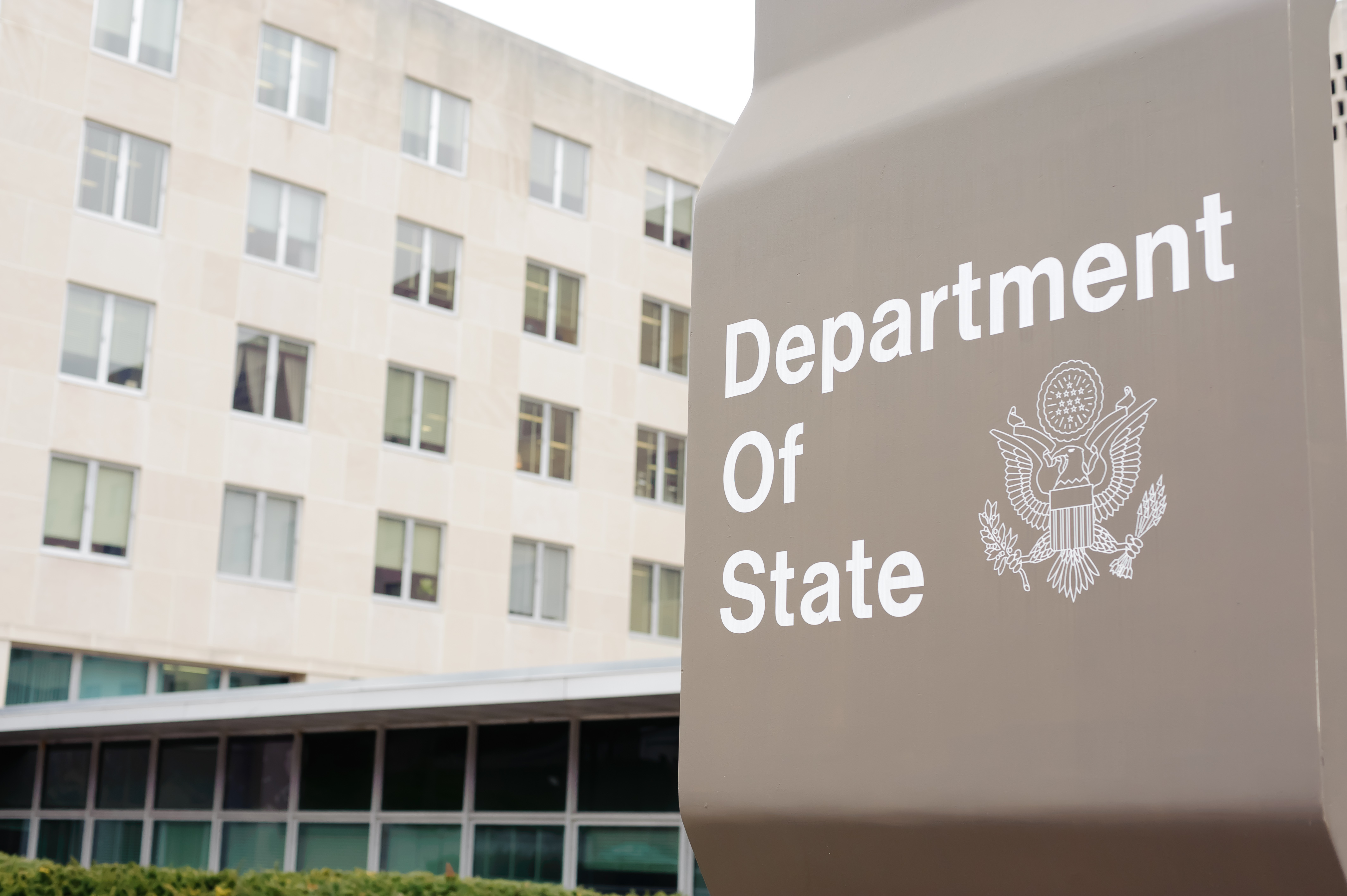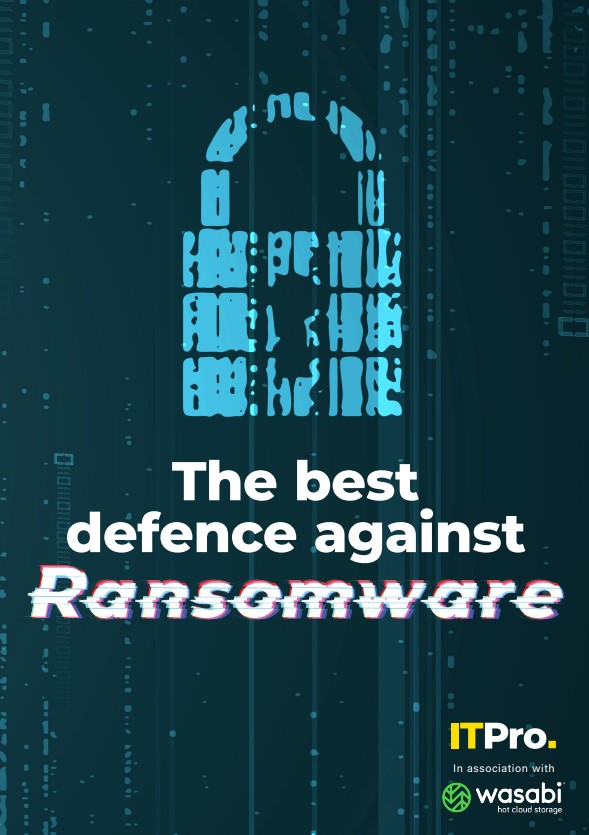US offers $10 million for information on BlackMatter ransomware operators
The sizeable reward will be given to anyone who can aid the investigation into those believed to be behind the Colonial Pipeline attack


Sign up today and you will receive a free copy of our Future Focus 2025 report - the leading guidance on AI, cybersecurity and other IT challenges as per 700+ senior executives
You are now subscribed
Your newsletter sign-up was successful
The US Department of State has said it will issue a reward up to $10 million (£7.4 million) to any individual who can provide it with information leading to the identification or location of any senior member of the group behind the BlackMatter ransomware tool.
An additional reward of up to $5 million (£3.7 million) will also be given to anyone who can provide information leading to the arrest or conviction of anyone involved in the distribution, or attempted distribution, of the ransomware.
The Department of State announced the initiative on Thursday, stepping up its pursuit of those who may be involved in the cyber attack on Colonial Pipeline earlier this year.
DarkSide was the malware believed to be used in the attack, which forced the US to suspend 5,500 miles of pipeline between Texas and New York, wreaking havoc on the nation's fuel supplies and spiking oil prices.
As IT Pro reported earlier this week, the BlackMatter group had confirmed it was ceasing operation following 'mounting pressure from law enforcement' and is believed to be a rebrand of the group which distributed DarkSide in the US earlier this year.
The ransomware gang issued the statement to its ransomware-as-a-service (RaaS) portal, which is used by clients, past and present, to access their copy of BlackMatter.
Experts have said that due to BlackMatter's recent success, and the lucrative nature of the business, it's likely the group will re-emerge - most likely under a different alias.
Sign up today and you will receive a free copy of our Future Focus 2025 report - the leading guidance on AI, cybersecurity and other IT challenges as per 700+ senior executives
RELATED RESOURCE

The best defence against ransomware
How ransomware is evolving and how to defend against it
"In offering this reward, the United States demonstrates its commitment to protecting ransomware victims around the world from exploitation by cyber criminals," the department said in a statement. "The United States looks to nations who harbour ransomware criminals that are willing to bring justice for those victim businesses and organisations affected by ransomware."
Following the attack on Colonial Pipeline, its CEO confirmed the company paid a $4.4 million (£3.2 million) ransom to the hackers, $2.3 million (£1.7 million) of which was subsequently recovered by the Department of Justice.
The reward is being offered under the Department of State’s Transnational Organised Crime Rewards Program (TOCRP), which has led to the convictions of more than 75 transnational criminals. The TOCRP has paid more than $135 million (£100.4 million) in rewards to date.
The rewards programme is split into two branches: one is focused on the distribution of narcotics, and the other is for transnational organised crime. Both can issue rewards of up to $25 million (£18.5 million) for information leading to the arrest and/or conviction of members of significant transnational criminal organisations.

Connor Jones has been at the forefront of global cyber security news coverage for the past few years, breaking developments on major stories such as LockBit’s ransomware attack on Royal Mail International, and many others. He has also made sporadic appearances on the ITPro Podcast discussing topics from home desk setups all the way to hacking systems using prosthetic limbs. He has a master’s degree in Magazine Journalism from the University of Sheffield, and has previously written for the likes of Red Bull Esports and UNILAD tech during his career that started in 2015.
-
 AWS CEO Matt Garman isn’t convinced AI spells the end of the software industry
AWS CEO Matt Garman isn’t convinced AI spells the end of the software industryNews Software stocks have taken a beating in recent weeks, but AWS CEO Matt Garman has joined Nvidia's Jensen Huang and Databricks CEO Ali Ghodsi in pouring cold water on the AI-fueled hysteria.
-
 Deepfake business risks are growing
Deepfake business risks are growingIn-depth As the risk of being targeted by deepfakes increases, what should businesses be looking out for?
-
 Ransomware gangs are sharing virtual machines to wage cyber attacks on the cheap – but it could be their undoing
Ransomware gangs are sharing virtual machines to wage cyber attacks on the cheap – but it could be their undoingNews Thousands of attacker servers all had the same autogenerated Windows hostnames, according to Sophos
-
 Google issues warning over ShinyHunters-branded vishing campaigns
Google issues warning over ShinyHunters-branded vishing campaignsNews Related groups are stealing data through voice phishing and fake credential harvesting websites
-
 The FBI has seized the RAMP hacking forum, but will the takedown stick? History tells us otherwise
The FBI has seized the RAMP hacking forum, but will the takedown stick? History tells us otherwiseNews Billing itself as the “only place ransomware allowed", RAMP catered mainly for Russian-speaking cyber criminals
-
 Everything we know so far about the Nike data breach
Everything we know so far about the Nike data breachNews Hackers behind the WorldLeaks ransomware group claim to have accessed sensitive corporate data
-
 There’s a dangerous new ransomware variant on the block – and cyber experts warn it’s flying under the radar
There’s a dangerous new ransomware variant on the block – and cyber experts warn it’s flying under the radarNews The new DeadLock ransomware family is taking off in the wild, researchers warn
-
 Hacker offering US engineering firm data online after alleged breach
Hacker offering US engineering firm data online after alleged breachNews Data relating to Tampa Electric Company, Duke Energy Florida, and American Electric Power was allegedly stolen
-
 Cybersecurity experts face 20 years in prison following ransomware campaign
Cybersecurity experts face 20 years in prison following ransomware campaignTwo men used their tech expertise to carry out ALPHV BlackCat ransomware attacks
-
 15-year-old revealed as key player in Scattered LAPSUS$ Hunters
15-year-old revealed as key player in Scattered LAPSUS$ HuntersNews 'Rey' says he's trying to leave Scattered LAPSUS$ Hunters and is prepared to cooperate with law enforcement